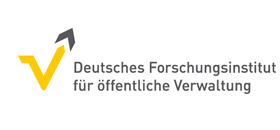Refine
Document Type
- Article (1)
- Part of a Book (1)
Has Fulltext
- no (2)
Is part of the Bibliography
- no (2)
Keywords
- Governance (1)
- Regulierung (1)
Each crisis is dreadful in its own special way, and so is the COVID-19 pandemic. Beyond its lethal nature and truly global spread, one of its characteristics lies within the detachment of cause and effect. The cause, i.e. SARS-CoV-2, can clearly be attributed to health issues, though the COVID-19 pandemic challenges entire public administration (PA) systems well beyond the health sector. Both the lockdown as executed and the first careful exit-steps in their entire complexity increase scope and scale of PA’s tasks and responsibilities, challenging not only health authorities, but all parts of the administrative system, from security administration to public service delivery, with the entire world remaining in very turbulent water. Thus, the question arises how the PA should react to ensure high performance in times of crisis. Our findings underpin the relevance of trust in public administration (or “the government” in general), notably in times of crisis: the higher trust levels are, the more likely compliance of citizens and successful networking with non-state actors is. Even in the absence of many trust generating factors, trust levels are increasing in the current COVID-19 pandemic.
In diesem Artikel gehen wir neue Pfade und beforschen 1) Vertrauen und Misstrauen in Re-gulierung 2) über nationale und europäische Regierungsebenen hinweg 3) in einem Eliten-Kontext und berücksichtigen somit die entscheidenden Akteure im Regulierungsregime als Vertrauensgeber und -nehmer. Wir analysieren Daten einer Umfrage unter Entscheidungs-trägern in den Sektoren Lebensmittel, Finanzen sowie Datenschutz und finden relativ hohes und über Zeit steigendes Vertrauen in Regulierungsregime und - akteure. Dabei sehen wir, dass, v.a.in Deutschland, Regulierung als zu locker in der Anwendung wahrgenommen wird. Ebenso können wir rückschließen, dass inklusivere Regulierung ein wichtiger Faktor zur Vertrauenssteigerung sein kann. Weiterhin stellen wir fest, dass Misstrauen ein weitgehend von Vertrauen unabhängiges Konzept darstellt. Wir finden, dass hohes Vertrauen durchaus mit hohem Misstrauen vergesellschaftet sein kann – teils gar der Regulierungsperformanz zuträglich.

